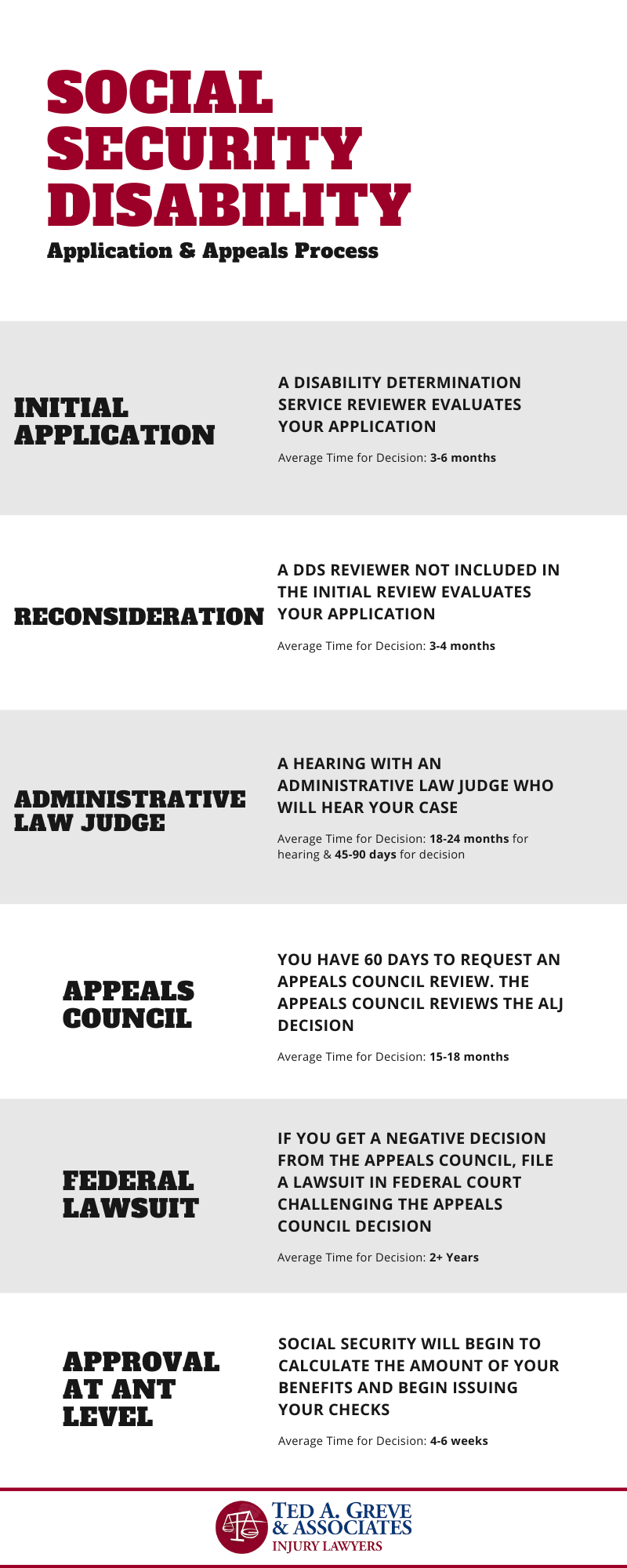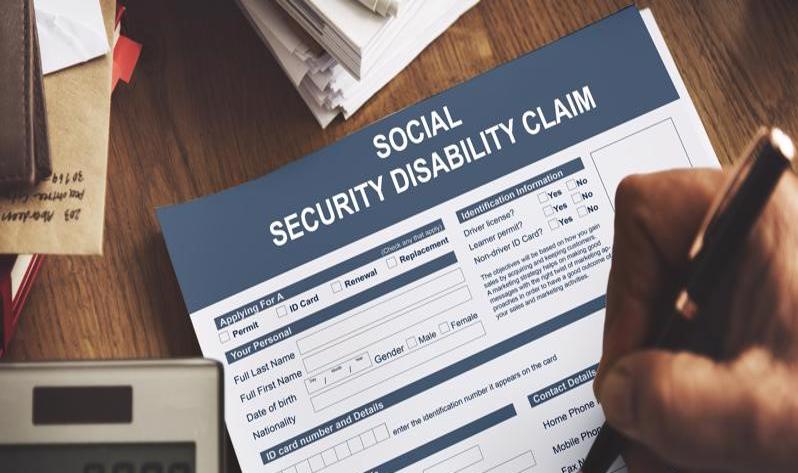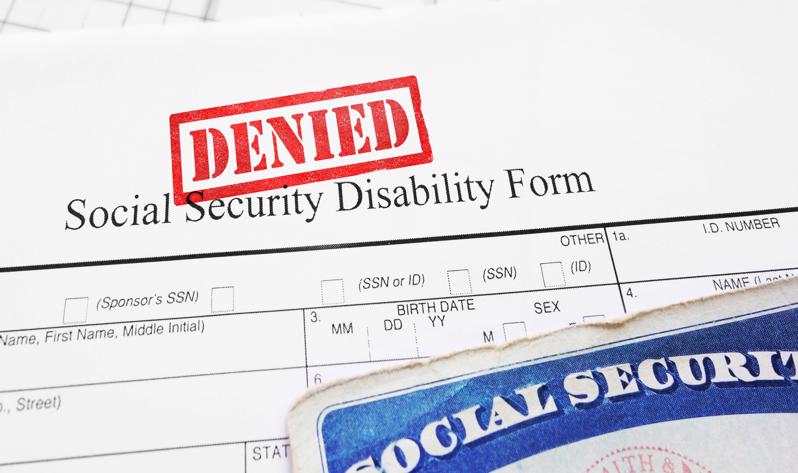Social Security provides income benefits to people that are disabled, unemployed, or retired. The monthly stipends from the Social Security Administration (SSA) are a lifesaver for millions of families in America. To ensure the SSA accepts your claim, call Ted A. Greve & Associates, P.A. to enlist the help of a social security disability attorney in Charlotte, NC today.
What is Social Security Disability Insurance and can an SSDI attorney Help?
Social Security Disability Insurance provides benefits to “insured,” disabled workers. However, the SSA reports that it denies over half of the claims it receives. Workers buy into the program by contributing funds each paycheck into the Social Security trust fund. If you were an employee and had your taxes automatically withheld, the Social Security taxes withheld from your paychecks are essentially your payments for premiums into the insurance program. The amount of contributions you made was dependent upon your earnings.
Not everyone has a long or full enough work history to qualify for SSDI, though. For those who cannot work due to age, blindness, or disability and do not have a sufficient work history to qualify for SSDI, the SSA provides another benefit option: the Social Security Income (SSI) program.
The SSI program, funded with general tax revenues, provides cash assistance payments to blind, disabled, and aged people who have very limited income. Blind or disabled children can also receive SSI. In order to qualify for SSI, applicants must not only prove their disability to the SSA, but they must also prove that their income and resources are below a certain threshold. (It does not matter what your income/resources are if you are applying for SSDI – only your work history and disability.)
What Are the Qualifications to Obtain SSDI Benefits?
In 2014, the SSA distributed disability benefits to nearly 800,000 disabled workers, according to the SSA’s Annual Statistical Report. In order to qualify for these types of cash benefits, you must be able to prove two conditions:
You have met the “work credits” requirements per the SSA’s guidelines.
Work credits are the markers that the Administration uses to gauge if you have worked enough to earn SSDI benefits. You can earn up to four credits per year, and your credits will stay on your record even if you work intermittently.
The number of credits you need to qualify for SSDI is determined by your age. For example, if you are under the age of 24, you only need to have earned six credits within the last three years. If you are over the age of 62, you will need to have earned 40 credits, at least half of which you need to have earned in the last ten years. You can find the precise number you need in the SSA’s Benefits Planner.
You must meet the SSA’s definition of disabled.
The SSA’s 2016 Red Book specifies: “To meet our definition of disability, you must not be able to engage in any substantial gainful activity (SGA) because of a medically-determinable physical or mental impairment(s) that is expected to result in death, or that has lasted or is expected to last for a continuous period of at least 12 months.”
Which Types of Disabilities Qualify Someone for SSDI?
Numerous types of disabilities can qualify someone for SSDI. The SSA maintains a detailed “Listing of Impairments” in its Blue Book that lists specific impairments affecting each of the body’s major systems that could prevent someone from working or engaging in SGA. There is a separate listing for adults and children.
The SSA has categorized qualifying impairments into 14 categories.
- Musculoskeletal System
- Special Senses and Speech
- Respiratory System
- Cardiovascular System
- Digestive System
- Genitourinary Disorders
- Hematological Disorders
- Skin Disorders
- Endocrine Disorders
- Congenital Disorders that Affect Multiple Body Systems
- Neurological
- Mental Disorders
- Cancer
- Immune System Disorders
Very specific factors must be present in order for the SSA to consider the condition disabling. For instance, under the musculoskeletal system category, soft tissue injuries such as burns can qualify someone for SSDI, but only if the injury was on:
- “An upper or lower extremity, trunk, or face and head,
- Under continuing surgical management… directed toward the salvage or restoration of major function,
- And such major function was not restored or expected to be restored within 12 months of onset.”
If you are applying for SSDI, you must be able to prove your condition using the required supportive diagnostics and medical tests. However, if your precise condition is not on the list, it does not mean you cannot qualify. If you have a different condition or a combination of conditions that prohibit you from SGA, the SSA may still accept your claim.
You Have a Qualifying Disability
The second criterion that must be satisfied in order for you to recover benefits under SSDI is that you have a qualifying disability. According to the Social Security Administration, a disability means that you cannot do the work that you once did; you are unable to adjust to other work and earn an income because of your condition; and your disability has lasted or is expected to last for at least one year or/and result in death. SSA defines full-time work as 8 hours a day, 5 days a week or an equivalent schedule. It is important to note that no benefits will be paid for a partial or temporary disability.
Another way to determine if you have a qualifying disability is to find out whether or not your condition meets or equals a Listing as defined in Social Security Administration’s Listing of Impairments. In addition, your disabling condition must meet SSA’s stringent level of severity. The conditions that are found on the impairment list range greatly in type, and include impairment to any of the following found below.
- Musculoskeletal system
- Special senses and speech
- Respiratory system
- Cardiovascular system
- Digestive system
- Genitourinary disorders
- Hematological disorders
- Skin disorders
- Endocrine disorders
- Congenital disorders;
- Neurological
- Mental disorders
- Cancer and
- Immune system disorders
Again, if your disability is not listed above, you may still qualify for benefits assuming that your impairment is disabling to the point where you are unable to work and it is expected to last for 12 months or more or result in death.
How Does the SSA Calculate SSDI Benefits?
According to its 2014 Statistical Report, the SSA shelled out over $11.4 billion in December 2014 to disabled beneficiaries. The average individual monthly benefit amount is $1,256.64.
If the SSA accepts your SSDI application, the Administration will determine your benefit amount using your total lifetime earnings covered by Social Security. To determine how much your particular SSDI benefit checks would be, you first need an estimate of your lifetime earnings.
If you do not know what those are, you can request a statement. The easiest way to request a statement of your earnings is to open an online Social Security account, where you will get to see your earnings, the amount of taxes you have paid, and estimates of your future benefits. (It is free to enroll.) If you know your estimated earnings, you can use the SSA’s online calculator to determine your benefit amount. Ask your social security disability attorney for help if you are having trouble estimating your benefits or want to verify what you have tallied.
While the SSA cannot disqualify you from SSDI if you were a high-wage earner, your benefit will be subject to the SSA’s maximum. The maximum allowable benefit changes annually due to inflation and cost-of-living adjustments (COLAs). For 2016, the SSA caps SSDI benefits at $2,639.
How Do I Apply for SSDI?
To apply for benefits, you will need to go through a specific application process, as well as provide the evidence necessary to prove your disability.
Note: The SSA is very particular about its definition of disabled, and the case managers carefully and systematically comb through each SSDI application to determine whether the applicants meet all the requirements.
There are three ways to apply for SSDI benefits:
- Virtually using the online application
- In-person – You can find your local SSA using the Social Security Office Locator. For example, in Charlotte, the nearest office is located at 5800 Executive Ctr. Dr., Suite 300.
- Telephone – 1-800-772-1213
You will need to have a substantial amount of information with you when you apply. You need documents and info related to:
- Birth and citizenship
- Marriage and divorce
- Your children
- Military service
- Employer details
- Job history
- Education and training
- A list of your medical conditions
- Doctor information for all of your medical providers
- Workers’ compensation
You can submit required documents either via mail or in-person, but because many of these documents are difficult and time-consuming to replace if lost, you might want to opt to submit them in person. Delays in submitting forms and documents will delay the entire application process.
Once you have submitted your application, you will receive a confirmation that the SSA has received your application. After it has reviewed all of your documents, the Administration will mail a decision to you.
Social Security Benefits for Survivors and Dependents
Providing for your dependents is no doubt very important to you. For this reason, it is important that you understand Social Security benefits for survivors and dependents. If you are disabled and not working, and are eligible for Social Security disability benefits, your dependents may be able to collect benefits on your record, as may your survivors in the event that you die. Those persons who can receive benefits on your earnings record include your:
- Spouse – if age 62 or older or caring for a child under age 16, or is also disabled;
- Divorce spouse – who was married to you for at least 10 years, is at least 62 years of age, has not remarried, and is not eligible for an equal to or greater benefit on their own record;
- Children;
- Disabled children; and
- Adult child – who became disabled before age 22.
According to Social Security laws, each dependent listed above is only able to receive up to 50 percent of your disability rate, and the total amount a family can receive is up to 180 percent of a single individual’s disability benefit award.
If you are currently receiving SSDI benefits and you die, your dependents will be allowed to continue collecting your benefits. Spouses are likely eligible to receive widow’s or widower’s benefits; children who are unmarried and under 18 years of age can receive benefits; and adult children, dependent grandchildren, and dependent elderly parents may also all be able to recover benefits on your record. There are many different categories of survivors’ benefits, so it is important that you speak to an experienced personal injury attorney about which you may qualify for and how to apply in order to ensure that you or your loved one recover the money they are entitled to.
Why Do I Need an SSDI Lawyer?
Before you begin the application process, we strongly urge you to at least consult an SSDI attorney. Simple mistakes can devastate your claim. A Charlotte social security disability attorney can check your forms and paperwork for thoroughness and accuracy, and ensure you have followed the SSA’s guidelines to a T so that the SSA does not wrongfully deny your application.
What Do I Do if the SSA Denies My Application?
There are numerous reasons the SSA may deny an applicant for SSDI. Below are a few examples.
- You might earn too much via SGA.
- Your disability might not be severe enough to meet the SSA’s definitions.
- You might lack sufficient evidence.
- You might not have submitted the requested documents.
- Failure to follow through with your physical therapy.
- You are in prison because of a felony.
- Alcoholism or drug addiction contributes to your disability.
- You lied on your application.
If the SSA denied your application and you think the denial was unjust, you have the right to appeal the claim. Appealing your claim gives you another chance to show the Administration why you deserve SSDI benefits.
The SSA recognizes four levels of appeals:
- Reconsideration
- A hearing by an administrative law judge (ALJ)
- A review by the Appeals Council
- A Federal Court review
At each level, you must make your requests for appeals in a certain way and within an allotted amount of time. The SSA explains: “When we send you a letter about a decision on your application, we will tell you how to appeal the decision.”
It is important to be fully prepared before moving forth with an appeal; you want to arm yourself with adequate evidence that supports your case.
Appealing a Denial of SSDI
If you have applied for Social Security Disability Insurance or Supplemental Security Income and your claim is denied for any reason, you have the right to appeal the decision. However, this right is conditional upon you taking action within the stipulated amount of time and following the appropriate steps. If you believe that you deserve SSDI benefits and have been denied, here is what you need to know about your right to appeal the decision:
Make Your Appeal Request Within 60 Days’ Time
If you want to appeal a decision handed down by the Social Security Administration, you must make this desire known by submitting an appeal request within 60 days’ time from the date that you receive notice from the Social Security Administration informing you that your SSDI claim has been denied. If you do not make your request known with 60 days’ time, your appeal will likely be denied. You must send a written appeal form, or you can file your appeal online.
The Four Levels of Appeal
There are four levels of appeal. These are:
Reconsideration
The first step is asking the Social Security Administration for reconsideration about the decision made in regards to your Social Security disability claim. A reconsideration refers to a complete review of your claim, essentially a ‘do-over.’ All of the medical evidence that was originally submitted with your claim and any additional evidence developed will be reviewed by an individual who was not involved in denying your claim as part of the original decision. Usually, you do not need to meet with anyone during the reviews process, unless special circumstances dictate otherwise.
Hearing
If a reconsideration results in the same decision as did your original claim (a denial of disability benefits), then you have the right to appeal the decision a step further by requesting a hearing with an administrative law judge (ALJ). During the hearing, you will have the right to present any new medical evidence that may substantiate your claim, and you can also call witnesses to the stand to testify on your behalf.
Appeals Council Review
Good witnesses that can be used to corroborate your case are usually vocational and medical experts, although you can also bring non-expert witnesses (such as a family member) to testify about your disability. When all evidence has been presented, the judge will issue a decision about your case. If you do not agree with the decision, you can yet again appeal – the next step is bringing your case before an appeals council.
Note that the Appeals Council is not obligated to hear your case unless it believes that the decision made during the hearing was possibly incorrect; if it believes that the hearing decision was correct and that your hearing was fair and just, it will not hear your case. If the appeals council decides to review your case, you will be notified of the decision.
Federal Court Review
Finally, the last step in the appeals process if appealing to a federal district court. Like the Appeals Council, the federal district court does not have to review your case; they can choose not to hear it if they believe that the decision issued by lower courts (Appeal Council, ALJ) was correct.
Throughout all steps of the appeals process, it is important that you have an experienced workers’ compensation lawyer guiding you. The goal is to get your claim approved during the reconsideration, if not the first time that you apply. You do not want to have to deal with the headache of filing an appeal with a federal district court.
Call Ted A. Greve & Associates Today for a Risk-Free Case Review
Yes, you absolutely should consider working with a Charlotte Social Security disability attorney at Ted A. Greve & Associates when applying for disability benefits. SSDI benefits can help your family stay afloat when you are disabled and can no longer provide for them. When you have contributed to the Social Security system through your years of contributions into the American economy and you can no longer work due to a disability, you deserve income benefits; you have earned them.
To greatly improve your chances of obtaining disability benefits, you owe it to yourself to have a legal professional facilitate your claim. An SSDI attorney can not only explain what you need to qualify and how much you can expect to get, but they can help you navigate the application process, gather medical evidence, and file for appeals.
In addition, you generally do not have to be concerned with not being able to afford an SSDI attorney because most disability attorneys work on a contingency basis, that is, you do not pay them unless they secure your benefits. Also, because Congress regulates the amount disability attorneys can charge for representation (25 percent of the back pay they win for you), you do not have to worry about surprises or paying anything up-front, out-of-pocket.
For questions about Social Security Disability Insurance benefits or to get started with your application, contact a social security disability attorney from Ted A. Greve & Associates, P.A. in Charlotte today at (844) 387-8677.





